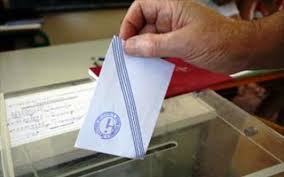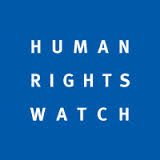By Sunday’s Zaman
On Aug. 20, 2015, the headlines of mainstream Turkish media outlets cited Alexis Tsipras, the Greek prime minister, bidding farewell as he resigned from his post with a quote by Nâzım Hikmet: “The most beautiful days we haven’t seen yet.”
The complete verse reads:
The most beautiful sea hasn’t been crossed yet.
The most beautiful child hasn’t grown up yet.
Our most beautiful days we haven’t seen yet.
And the most beautiful words I wanted to tell you
I haven’t said yet…
While the Turkish media finds lyricism and national pride in the now-former prime minister of Greece‘s departing words, it forgets the tragedy of Turkey’s neighbor. Greece is being sold as if a prize — but impoverished — estate at an auction, piece by piece. And this unprecedented crisis appears to benefit exclusively some Western European countries that, as if at an auction, acquire valuable collectibles at a fraction of their worth.
While the rate of VAT on daily products has been rapidly increasing, imposing a heavy toll on ordinary Greeks, public companies are being sold off. The proceeds from sales, however, are not directed to the state budget to pay salaries but to the national debt. The proceeds from a sale of a public Greek company to a German company end up in a German bank.
Western European national parliaments, such as Spain and Germany last week, have been voting one by one to approve the third of the “assistance” plans to Greece. At the same time, private and public companies of the same states are eyeing Greek assets available for sale. For example, Fraport — the German airport management giant, which operates Frankfurt Airport — is waiting to buy 14 (fourteen) Greek airports. The deal entails a payment of 1.23 billion euros ($1.36 billion) from Fraport for a period of 50 years and a rent of 22.9 million euros a year, according to the Greek online media outlet Protothema.
Greeks will not see a eurocent of this money, however. All major airports servicing primary tourist locations such as Rhodes, Mykonos and Corfu will transfer under ownership of a consortium headed by Fraport and… the federal German state Hesse and the city of Frankfurt. Read this sentence another time, please!
According to the French news radio station France Info, since the beginning of the Greek crisis, Germany has made 100 billion euros (3 percent of its GDP) of savings by providing assistance to Greece. In other words, Germany has already nearly doubled in profits the assistance package of 56 billion euros it delivered to Greece…
Greece to privatize more than 59 billion euros of asset
In this third “assistance” plan, Greece has to privatize more than 59 billion euros of assets. This recommendation was included in the first assistance plan and it came back in the third. It is one of the main reasons for the schism in SYRIZA and the resignation of Tsipras. Former Finance Minister Yannis Varoufakis was against it, of course. And he had to resign under Western European pressure.
The outcome is dramatic. Everything that the Greek people have built since the end of the colonels’ junta (1974) is now up for grabs: The railways, oil and gas distribution companies, the Public Power Corporation, seaports (a particular pride of Greeks), highways, the Greek National Lottery and of course real estate.
Even more dramatic and ironic is the fact that some of the infrastructure listed now “for sale” had been built for the 2004 Olympic Games, with Greek and EU money paid to European companies. The new metro system for the Olympics, for example, which was built by a consortium in which the main shareholders were Siemens and Interinfra and consisting of 21 other French, German and Greek companies. EU funds, issued mainly by Germany and France for the 2004 Olympic Games, constituted 90 percent and those of Greece only 10 percent. To attract this capital, Greece offered already sizeable tax benefits to French and German companies. Now, if a European company buys the metro, not only the money will return to the original funding source but as a bonus, the metro itself. This is capitalism; not a savage capitalism but the regular one, which is already savage enough.
But Germans are not alone in benefiting from the Greek tragedy. China wants to buy Athens’ airport, according to Deutsche Welle (http://www.dw.com/en/sierens-china-beijing-fosters-friendship-with-athens/a-18192518). It seems that Berlin is very happy with the Chinese interest in Greece because the Chinese money will end up in German banks.
France is in line to buy the Greek national mail company and also the public broadcaster. The latter has enormous real estate capital. The French highway company VINCI is negotiating to buy a Greek highway. This company built the Rion-Anitrion Bridge between the Peloponnese and continental Greece in 2004 for the Olympic Games! A sweepstakes company has been already bought by Czechs.
Investors from Qatar, Azerbaijan, Dubai and Russia are also in line. As to real estate, Greeks are being pushed to sell their houses and land to be able to pay taxes and VAT and to live, while foreigners are buying houses, land and even islands for up to 40 percent off the market price.
According to several newspapers, Brad Pitt and Angelina Jolie are about to buy a private island (Gaia) for $4.7 million. Upper-middle-class foreign investors are buying hotels, land and houses on Greek islands.
If one day I see Alexis Tsipras, I will tell him:
I do believe sincerely that the most beautiful words I wanted to tell her I haven’t said yet…
And I do believe sincerely that the most beautiful days we haven’t seen yet.
But if the sale of Greece continues in the same vulture-esque fashion, my Greek friends may not live to see these most beautiful days for another decade as foreign banks and companies strip their country of its national “family silverware.”



















